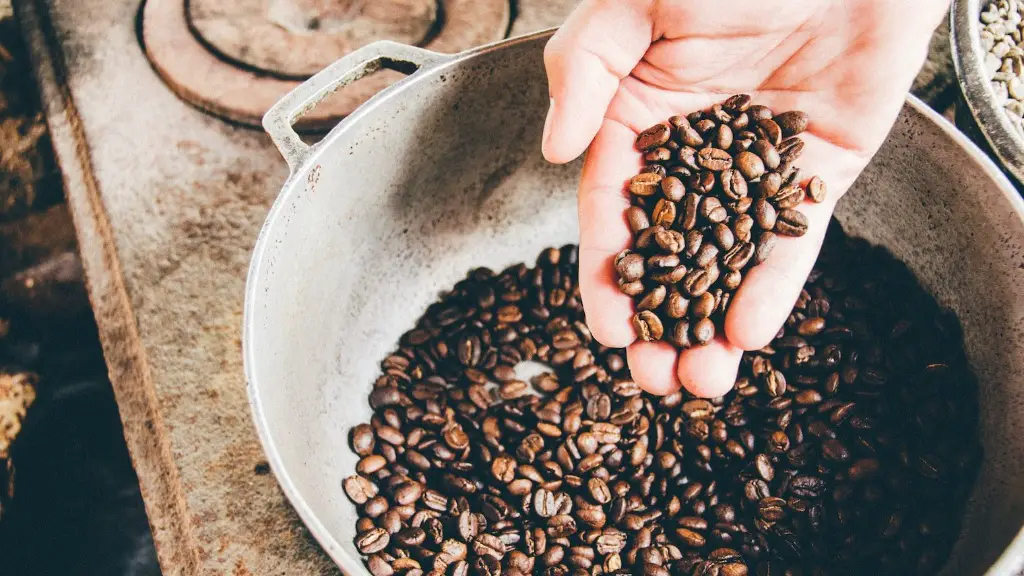The debate about whether we should drink coffee has been ongoing for decades. The health benefits some research has suggested come with drinking coffee are counterbalanced by the potential drawbacks of too much consumption of the beverage. If you take a look at the evidence, it’s clear that the potential health risks far outweigh the potential breath benefits.
It’s no secret that caffeine is an addictive substance. Caffeine is a stimulant to the central nervous system, so overconsumption can lead to serious health issues such as sleep disturbances, mood swings, fatigue and restlessness. Long-term use of coffee can cause a build-up of tolerance, which means you’ll need to drink more and more to get the same effect. This in turn leads to larger amounts of caffeine being consumed, causing further symptoms involving the heart, blood pressure and digestive system.
In terms of nutrition, coffee doesn’t provide any essential vitamins or minerals to the diet, so drinking lots of it won’t necessarily be beneficial for your health. With coffee, you’re essentially drinking an empty calorie beverage, which means you’ll need to consume extra food and drink products to make up for the lack of nutrition. Furthermore, coffee is high in acidity, so it has a tendency to irritate the stomach, leading to heartburn and other digestive issues.
As if that weren’t enough, coffee can contribute to dehydration as it’s a diuretic. This means that more fluids are being excreted from the body and with regular coffee use, it’s likely that dehydration will set in. The condition is exacerbated by the acidity of the coffee, stimulating the digestive system and making it difficult for the body to rehydrate.
Lastly, caffeine can cause an array of other problems, such as anxiety and depression because it causes an increase in cortisol, the stress hormone. Overstimulation due to caffeine can cause a spike in cortisol and as a result, your mood and energy levels could be compromised. With long-term use, this can turn into chronic anxiety, which is a serious mental health issue.
Caffeine and Addiction
Caffeine is a stimulant and for the low few centuries it has been deriving from roasted coffee beans and used to give people extra energy. While caffeine does boost energy and attention, it also has several side effects, such as anxiety and insomnia, among others. When consumed too much or at the wrong time, caffeine can have serious implications for a person’s health and well-being.
In particular, there is evidence that caffeine can be addictive. This can especially be true for those who drink coffee and other caffeinated beverages often. Research suggests that those who consume high amounts of caffeine and then suddenly stop, may experience powerful cravings and even withdrawal symptoms.
Caffeine addiction can be hard to recognize because it’s a subtle addiction and the person can still function in everyday life normally. It’s often simply the satisfaction that the person gets from the experience of drinking coffee that keeps them addicted. It shouldn’t be taken lightly, however. Excessive caffeine consumption can have serious health effects and should be monitored carefully.
It’s important to take action to reduce the effects of caffeine addiction, such as cutting back on the amount of coffee or caffeine consumed, or even cutting it out altogether. Those who experience intense caffeine cravings may benefit from cognitive behavioral therapy, which can be very helpful in aiding recovery from addiction.
Health Implications of Coffee consumption
Coffee consumption has been the subject of a great deal of research in the recent years. Studies have shown that there are some potential health implications of consuming too much coffee. Research has suggested that caffeine can cause an increase in heart rate and can cause higher levels of anxiety in some individuals.
Furthermore, coffee consumption can lead to an increase in blood pressure, which could be dangerous for those with existing high blood pressure problems. Therefore, it is important to be aware of these risks and to monitor consumption levels.
In addition to this, there are other health implications of excessive consumption of coffee. Caffeine is a diuretic, meaning that it can cause dehydration in the body. This could lead to headaches, fatigue, and a general feeling of weakness. Therefore, it is important to be aware of the amount of caffeine consumed and ensure it is adequately balanced with the consumption of adequate amounts of water.
The American Dietetic Association also recommends limiting the consumption of coffee to no more than three cups per day, since more than that can cause health problems such as insomnia, anxiety, and irritability. Therefore, it is important to be aware of potential health risks associated with coffee consumption and to take steps to limit consumption if necessary.
How to substitute for coffee
For those who are looking to reduce the amount of coffee they consume or even cut it out altogether, there are several alternatives to the classic cup of joe. Options like herbal teas, matcha tea, and yerba mate are all popular substitutes that offer similar physiological effects to that of coffee, without the same levels of caffeine or acidity.
For a dose of energy and mental clarity, try green tea, which is loaded with polyphenols and antioxidants and is a far healthier option than drinking coffee. Other substitutes such as sparkling water and kombucha can also be great alternatives to coffee, as they offer a boost of energy and refreshment, while still being low in calories and sugar.
For those with a sweet tooth, chicory coffee is an interesting option that is naturally caffeine-free and comes in a variety of flavors. Natural sources of energy such as nuts, seeds, fruits and dark chocolate are also great alternatives that offer a more sustained energy boost to the body, while still being enjoyable to eat.
For an extra boost in the mornings, consider adding some superfoods to your breakfast such as cacao powder, bee pollen, almond Butter or chia seeds, which are all naturally rich in beneficial vitamins and minerals.
Environment Implications
The modern convenience of coffee often comes with a heavy cost to the environment. Growing, harvesting and roasting coffee beans requires a tremendous amount of resources and energy. The production of green coffee beans alone is responsible for the destruction of valuable habitat and pollutants that can seep into waterways.
In addition, there is an impact on the climate due to the amount of carbon dioxide produced during the roasting process. The transport of coffee beans from farms to cafés and kitchens causes further emissions. Furthermore, the waste produced from coffee cups, espresso machines and other equipment puts strain on our environment.
However, there are a number of organizations and initiatives making efforts to reduce the impact of coffee production. For instance, a number of coffee roasters offset their emissions with carbon credits and invest in third-party certification schemes. Furthermore, there are various organizations working on sustainable coffee farming which helps protect the environment and conserve resources.
To further reduce the environmental impact, it’s important to think twice before you buy that cup of coffee. Consider investing in your own coffee maker at home and use reusable coffee cups to cut down on waste. More broadly, it’s important to support coffee businesses that are making efforts to minimize their environmental impact.
Alternatives to coffee
Instead of starting your day with coffee, why not try something less caffeinated yet just as energizing? Kombucha is a fermented tea drink packed with probiotics and vitamins, making it a far healthier option than drinking coffee. Not only does kombucha give you an energy boost, but it’s also loaded with beneficial bacteria that can help keep your body healthy.
Other alternatives such as smoothies, bubble tea, yerba mate, and herbal teas are all excellent options to consider when looking for a pick-me-up. With smoothies, you can mix and match a variety of fruits and veggies to your personal taste to make a refreshing and nutritious pick-me-up. Yerba mate, bubble tea, and herbal teas also provide a subtle and sustained energy boost without the need for caffeine.
Alternatively, if you’re someone who prefers to start your day with a hot drink, you can try hot cocoa. Hot cocoa is a great substitute for hot coffee, and it’s loaded with antioxidants and anti-inflammatory properties. Or, get creative with your morning brew and combine ingredients such as turmeric, cinnamon, maca powder, and adaptogens to create a great alternative to your morning coffee.
Mental Health Benefits of quitting coffee
Quitting coffee can offer unforeseen mental health benefits. Detoxing from caffeine can help improve concentration, focus, and alertness as it provides a rest to the central nervous system. In addition to this, reducing the levels of stimulants in the body can help to improve sleep quality and reduce anxiety levels.
Caffeine can also increase cortisol levels in the body, which can lead to stress and anxiety over time. By quitting coffee, a person can reduce the levels of the stress hormone in the body and can improve mood and wellbeing. In addition to this, the overall quality of life can increase as the person feels less jittery with no caffeine in the body.
Quitting coffee can also reduce the risk of caffeine addiction in the long run. Those prone to addiction should consider monitoring their consumption of coffee as it can be hard to recognize the signs of addiction. People should also be aware that there is no safe amount of caffeine consumption and that it is best avoided altogether.
For those considering quitting coffee, the path to success can be difficult without the correct approach. It is important for people to replace coffee with healthier alternatives and support their journey with the help of healthy foods and regular exercise. In the end, quitting coffee can have a positive impact on a person’s mental health, wellbeing, and overall quality of life.





